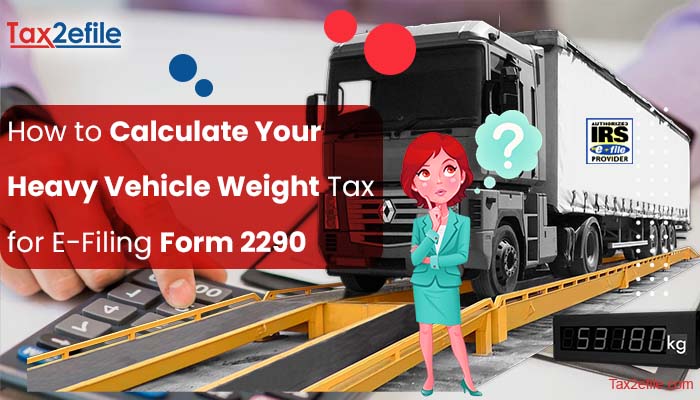- June 1, 2023

For truck owners and fleet operators, the IRS Form 2290 filing process can be complicated, particularly understanding who must pay the Heavy Vehicle Use Tax (HVUT) and who qualifies for an exemption. This comprehensive guide will help you clearly understand who is exempt, who must file, and how to stay compliant with the IRS for the 2025–2026 tax year.
Table of Contents
Who Must File Form 2290?
Taxpayers should file Form 2290 and receive Schedule 1 for the tax year from July to June for every year. After registering a taxable highway motor vehicle under the name, and based on the FUM of the vehicle, truckers have to file Form 2290.
An individual, limited liability company, partnership, corporation, and all other types of organizations should file Form 2290. The main conditions are that the truck should weigh 55,000 pounds or more. The vehicle should have run more than 5000 miles (7500 miles for agricultural vehicles). If the taxable vehicle is in the name of the owner and another person, the owner is liable for tax.
Also, if the vehicle operates with the dealer’s tag, permit, or license, the dealer is liable for paying taxes. Logging vehicles (vehicles meant for transporting harvest products from forest sites) have minimal tax rates.
Form 2290 – Taxable Vehicles
In simple terms, you must file Form 2290 if:
-
You own, lease, or operate a heavy highway motor vehicle registered in your name.
-
The vehicle has a taxable gross weight of 55,000 pounds or more.
-
The vehicle will operate on public highways during the tax period (July 1, 2025, to June 30, 2026).
IRS Form 2290 Exemption: Who is Exempt from HVUT?
While many heavy vehicles are taxable, the IRS provides exemptions for certain vehicles and organizations. However, and this is important in most cases, you must still file Form 2290 to claim the exemption and receive your Schedule 1.
Here’s who may qualify for a Form 2290 exemption:
Low Mileage Exemption
If your heavy vehicle operates 5,000 miles or less (or 7,500 miles or less for agricultural vehicles) during the tax period, you do not need to pay the HVUT, but you must file Form 2290, classify the vehicle as “suspended”, and keep your Schedule 1. Many owner operators who only run limited loads in a year can take advantage of this low-mileage exemption.
Government-Owned Vehicles
Vehicles owned and operated by:
-
The Federal Government
-
Any state or local government
-
The District of Columbia
are exempt from HVUT. But a Form 2290 should still be filed to report these exempt vehicles and secure a valid Schedule 1 for registration purposes.
Non-Profit Organizations and Public Service Groups
The IRS allows exemptions for vehicles used and operated by:
-
Volunteer fire departments
-
Ambulance associations
-
Rescue squads
-
Mass transportation authorities were created under state law
Again, while these vehicles are exempt from the tax, the organization must still file Form 2290 and Schedule 1 to claim the exemption.
Special Purpose Vehicles
Blood Collector Vehicles: Vehicles that are used explicitly for blood collection by a nonprofit blood bank or blood collector nonprofit organization.
Mobile Machinery: Certain off-highway motor vehicles and specialized mobile machinery that are designed for non-transportation purposes qualify for an exemption from the HVUT if they meet IRS standards.
Form 2290 With Tax2efile
The due date for filing the HVUT taxes is between July 1st to August 31st, every year. IRS encourages all taxpayers to e-file their tax returns, though it is mandatory for those who report 25 trucks or more. Truck owners can e-file their returns with the IRS through an IRS-approved software provider like Tax2efile. The portal also offers the option to pre-file the 2290 forms in June. It will submit the 2290 Forms to the IRS in July, as soon as it accepts the Forms. Taxpayers can get their Schedule 1 copy in their mail in minutes. Tax2efile also offers discounts on taxes for its taxpayers.


